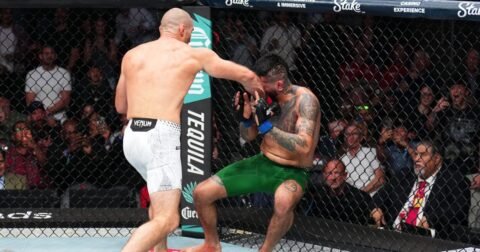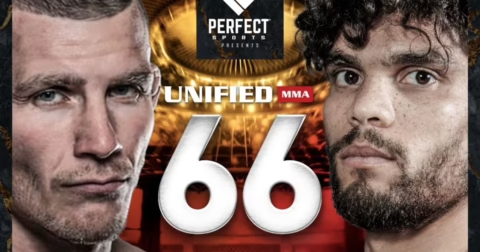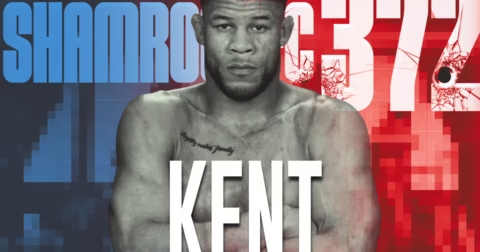Roman Dolidze has emerged as a formidable contender in the world of mixed martial arts, recently responding to Robert Whittaker’s critiques after his performance at UFC Fight Night 254. With a professional record of 14-3 and a solid 8-3 standing in the UFC, Dolidze has showcased his skills by successfully avenging his previous loss to Marvin Vettori in a thrilling main event. Following this victory, he made headlines by calling out both Israel Adesanya and Robert Whittaker, two of the division’s elite fighters. Whittaker, a former champion with a 26-8 record, dismissed Dolidze’s challenge, but the Georgian fighter didn’t shy away from firing back with accusations regarding Whittaker’s own recent struggles in the octagon. As fans eagerly anticipate his next move, Dolidze’s journey in the UFC continues to captivate the mixed martial arts community, proving that he is a force to be reckoned with on the rise.
In the realm of the UFC, Roman Dolidze stands out as a rising star amongst a field of elite athletes, making waves in mixed martial arts with his recent performances. After a strong showing in his fight against Marvin Vettori, Dolidze has taken the opportunity to openly challenge renowned fighters like Robert Whittaker and Israel Adesanya. Whittaker’s critical remarks didn’t deter Dolidze, who responded by highlighting the former champion’s past defeats, indicating his own resilience and determination to ascend the ranks. As he continues his impressive three-fight winning streak, the spotlight shifts onto the ambitious competitors in the middleweight division, where fighters like Dolidze strive to claim their spot against experienced contenders. With the potential for thrilling matchups in the future, his impact on the sport is undeniable.
Roman Dolidze vs. Robert Whittaker: A Rivalry Ignited
The mixed martial arts community was taken aback when Roman Dolidze took to the public stage to respond to Robert Whittaker’s recent criticism. Following his victory at UFC Fight Night 254, where Dolidze avenged his prior loss to Marvin Vettori, he called out not only Whittaker but also Israel Adesanya. This bold move has sparked conversations about the dynamics of rivalries in the UFC, especially considering Whittaker’s stature as a former middleweight champion. Dolidze’s current record of 14-3 shows that he is a worthy contender, and his confidence appears to be soaring after a successful streak of wins.
In an environment as competitive as the UFC, words can wield just as much power as fists in the octagon. Dolidze’s retort towards Whittaker highlights the tension that can exist between fighters who share the ring. By questioning Whittaker’s tenure and recent performance, particularly a quick submission loss to Khamzat Chimaev, Dolidze positions himself as not just an up-and-comer but as a serious threat to established fighters. This brings to light the pressing narrative within the UFC: the old guard against the new challengers eager to carve out their legacy.
Insights on Dolidze’s Performance and Winning Streak
Roman Dolidze’s recent performances have certainly caught the eye of the UFC audience, especially his three-fight winning streak that includes notable victories over respected opponents. Each match seems to strengthen his resolve and technical prowess within the octagon. By defeating fighters like Anthony Smith and Kevin Holland, Dolidze has demonstrated not only his striking ability but also his adaptability to different fighting styles—a hallmark of mixed martial arts success. His unanimous decision victory over Marvin Vettori showcased his growth as a fighter and ability to strategize effectively against seasoned competitors.
Furthermore, analyzing Dolidze’s fighting style reveals a blend of various martial arts disciplines, allowing him to dominate in crucial moments of his fights. His win against Vettori was particularly significant as it represents both vengeance and a stepping stone towards higher stakes confrontations against fighters like Whittaker and Adesanya. The UFC middleweight division is notorious for its fierce competition; however, Dolidze is making a strong case for himself as a contender who can not only engage in verbal warfare but also back it up with fierce performance inside the cage.
The Fallout from UFC Fight Night 254
UFC Fight Night 254 was a pivotal event not just for Roman Dolidze, but for the entire middleweight division as it continues to evolve. The aftermath of Dolidze’s decisive win raised eyebrows within the fight community, particularly given the heated exchanges between him and Robert Whittaker. The critiques and responses from both sides reflect the temperament found in mixed martial arts, where rivalries can often revitalize a fighter’s career. Whittaker’s derision may be born out of concern for maintaining his relevance in the sport, especially with younger contenders making their mark.
Moreover, this event might lead to prospective matchups that could redefine pathways to the title. The attention surrounding Dolidze, along with the back-and-forth banter, puts him within reach of a potential high-stakes fight against established stars like Whittaker or Israel Adesanya. Such bouts not only promise exciting action but also create narratives that keep spectators engaged. The conversation continues as to whether Dolidze can maintain his momentum and prove his capability against the elite of the division.
Looking Ahead: Dolidze’s Future in the UFC
As Roman Dolidze looks toward his future in the UFC, there are numerous exciting possibilities. His recent performances have not only bolstered his record but also significantly improved his ranking within the middleweight division. With ambitions to challenge prominent names like Israel Adesanya or Robert Whittaker, the next few fights will be critical in determining if he can convert his momentum into potential title contention. The mixed martial arts arena rewards those who seize opportunities, and Dolidze seems prepared to capitalize on his recent success.
Moreover, Dolidze’s ability to provoke his rivals with strategic callouts strategically enhances his visibility in the UFC landscape. The frequency of media coverage around his verbal exchanges with Whittaker emphasizes the potential for high-profile matchups that could draw significant viewer numbers. If Dolidze can continue to win while building up rivalries, he might not only become a fan favorite but also a serious contender for championship gold in a division marked by its fierce competition.
Analyzing Dolidze’s Callout Strategy
Roman Dolidze’s callout strategy post-UFC Fight Night 254 demonstrates a calculated approach to gaining recognition within the highly competitive mixed martial arts domain. By directly addressing both Robert Whittaker and Israel Adesanya, Dolidze aims to elevate his profile among the top contenders in the sport. Callouts serve as powerful tools for fighters attempting to generate buzz and leverage their current performance into future opportunities—effectively capitalizing on recent successes to strut their ambitions.
In mixed martial arts, how fighters handle public exchanges can sway public perception and influence matchmaking decisions. Dolidze’s confrontation with Whittaker reflects a broader trend where fighters utilize their platforms to amplify personal narratives and rivalries. This engagement not only keeps them in the spotlight but also cultivates a sustainable storyline that excites fans and analysts alike. As Dolidze continues to assert himself, one can only anticipate how his tactics will play out in match negotiations and potential future bouts.
The Role of Criticism in Fighter Development
Criticism can be both a burden and a catalyst for fighter development, as demonstrated by the exchanges between Roman Dolidze and Robert Whittaker. Dolidze’s reaction to Whittaker’s critique of his fighting style showcases how feedback, whether intended as constructive or derisive, can motivate fighters to refine their skills and strategies. In the world of mixed martial arts, handling criticism effectively is essential for growth, as many fighters often analyze their past performances to avoid repeating mistakes and to bolster their game plans.
In this context, Dolidze’s engagement with Whittaker not only serves as a defense mechanism but as a motivational tool to propel himself further in his career. Understanding how to respond to criticism, especially from established fighters like Whittaker, plays a crucial role in how newcomers navigate the narrative landscape of the UFC. For Dolidze, overcoming such challenges may ultimately lead him closer to the championship dream that motivates many who enter the octagon.
The Impact of Winning Streaks in MMA
Winning streaks are pivotal in mixed martial arts, significantly impacting a fighter’s trajectory and public perception. For Roman Dolidze, his current three-fight winning streak places him squarely in the spotlight, providing the momentum necessary for high-stakes matchups. The psychological advantage gained through consistent victories can redefine a fighter’s confidence and approach to future bouts. In the UFC, where every match counts, maintaining such momentum can directly correlate to title shots or featured fights against prominent opponents.
Dolidze’s ability to secure victories over notable fighters emphasizes his readiness to compete at the highest level in the middleweight division. Winning streaks not only please fans but also attract the attention of matchmakers seeking compelling matchups that enrich the event’s narrative. By continuing to maintain his winning momentum, Roman Dolidze not only builds a strong case for contender status but also contributes to the broader storyline within the UFC, where rivalries and aspirations for glory coexist.
The Future of the UFC Middleweight Division
The UFC middleweight division is currently experiencing a resurgence of talent, with fighters such as Roman Dolidze leading the charge into a new era. The mix of established veterans like Robert Whittaker and rising stars creates a dynamic environment rife with potential matchups that could redefine rankings and title contention. Dolidze’s emergence amidst this competitive backdrop signals a shift as fresh faces challenge traditional power structures and narratives within the division.
As mixed martial arts fans anticipate future events, the evolving context of the middleweight landscape suggests thrilling opportunities ahead. Dolidze’s position as a player in this gritty landscape fuels discussions about evolving fighting techniques and rivalries, further charging the atmosphere surrounding upcoming bouts. With every victory and challenge, the future of the UFC middleweight division remains captivating for spectators, ensuring that passionate narratives unfold for new and seasoned fighters alike.
| Fighter | Record | Recent Fight Outcome | Remarks |
|---|---|---|---|
| Roman Dolidze | 14-3 MMA, 8-3 UFC | Defeated Marvin Vettori (UD) | Called out Adesanya and Whittaker; criticized Whittaker’s comments. |
| Robert Whittaker | 26-8 MMA, 17-6 UFC | Lost to Khamzat Chimaev (Submission) | Dismissed Dolidze’s callout; criticized his fight against Vettori. |
| Marvin Vettori | 18-7-1 MMA, 8-5-1 UFC | Lost to Dolidze (UD) | Former title challenger; faced Dolidze in a rematch. |
Summary
Roman Dolidze has proven his resilience and skills in the UFC by responding assertively to Robert Whittaker’s criticisms, especially after his recent victory over Marvin Vettori. By calling out both Whittaker and Israel Adesanya, Dolidze positions himself as a serious contender in the middleweight division. His comments reflect not only his confidence but also highlight the competitive nature of mixed martial arts, where every fighter must continuously adapt and prove themselves. As he continues his winning streak, fans are eager to see how Dolidze will impact the future of the division.







